lntegrated Coastal Zone Management. The way towards a sustainable coast? K. E.E.G. Belpaeme
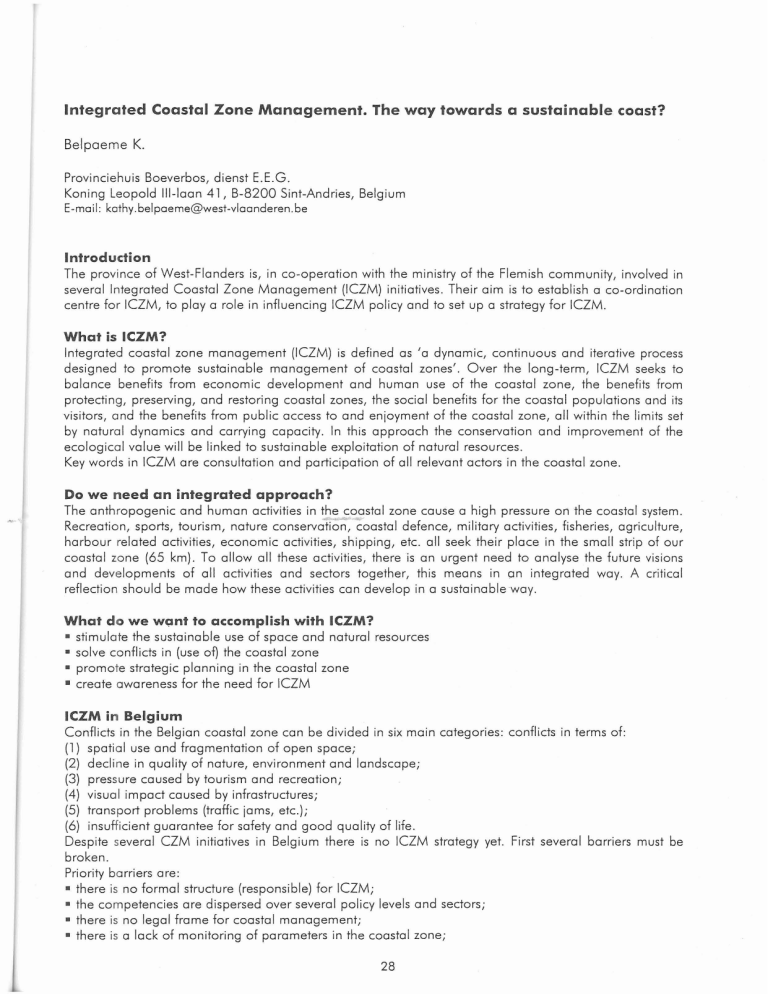
lntegrated Coastal Zone Management. The way towards a sustainable coast?
Belpaeme
K.
Provinciehuis Boeverbos, dienst E.E.G.
Koning Leopold Ill-laan 41, B-8200 Sint-Andries, Belgium
E-mail: kathy.belpaeme@west-vlaanderen.be
Introduction
The province of West-Flanders is, in co-operation with the ministry of the Flemish community, involved in several lntegrated Coastal Zone Management (ICZM) initiatives. Their aim is to establish a co-ordination centre for ICZM, to play a role in influencing ICZM policy and to set up a strategy for ICZM.
What
is
ICZM?
lntegrated coastal zone management (ICZM) is defined as 'a dynamic, continuous and iterative process designed to promote sustainable management of coastal zones'. Over the long-term, ICZM seeks to balance benefits from economic development and human use of the coastal zone, the benefits from protecting, preserving, and restoring coastal zones, the social benefits for the coastal populations and its visitors, and the benefits from public access to and enioyment of the coastal zone, all within the limits set by natural dynamics and carrying capacity. In this approach the conservation and improvement of the ecological value will be linked to sustainable exploitation of natural resources.
Key words in ICZM are consultation and participation of all relevant actors in the coastal zone.
Do we need an integrated approach?
The anthropogenic and human activities in the coastal zone cause a high pressure on the coastal system.
Recreation, sports, tourism, nature conservation, coastal defence, military activities, fisheries, agriculture, harbour related activities, economic activities, shipping, etc. all seek their place in the small strip of our coastal zone (65 km). To allow all these activities, there is an urgent need to analyse the future visions and developments of all activities and sectors together, this means in an integrated way. A critical reflection should be made how these activities can develop in a sustainable way.
What do we want to accomplish with ICZM?
stimulate the sustainable use of space and natural resources solve conflicts in (use of) the coastal zone promote strategic planning in the coastal zone create awareness for the need for ICZM
ICZM in Belgium
Conflicts in the Belgian coastal zone can be divided in six main categories: conflicts in terms of:
(1)
spatial use and fragmentation of open space;
(2) decline in quality of nature, environment and landscape;
(3) pressure caused by tourism and recreation;
(4) visual impact caused by infrastructures;
(5) transport problems (traffic jams, etc.);
(6) insufficient guarantee for safety and good quality of life.
Despite several CZM initiatives in Belgium there is no ICZM strategy yet. First several barriers must be broken.
Priority barriers are: there is no formal structure (responsible) for ICZM; the competencies are dispersed over several policy levels and sectors; there is no legal frame for coastal management; there is a lack of monitoring of parameters in the coastal zone;
there is a strong sectoral approach and planning; there is a lack of co-ordination, consultation and communication;
= there is no planning at sea.
Initiatives at European and international level will hopefully help to stimulate Belgium in drawing up a future plan for ICZM.

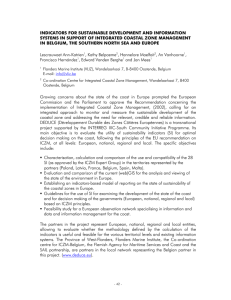
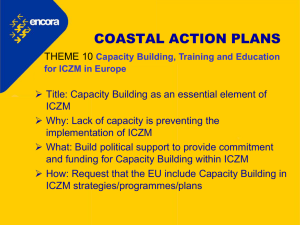
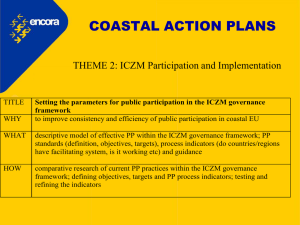

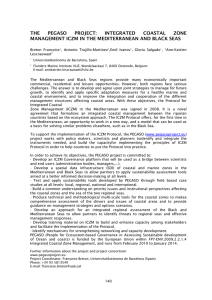

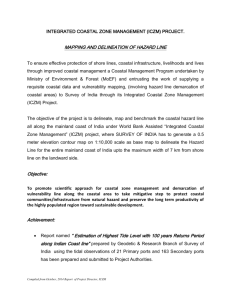
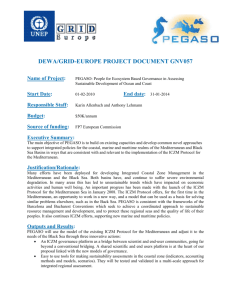

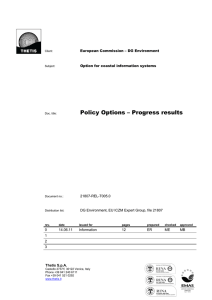
![[2005-2010] Belgian report on the implementation of the ICZM Recommendation 2002/413/EG](http://s2.studylib.net/store/data/011891490_1-4cd2b6b18a31e2d72bb359045baab331-300x300.png)